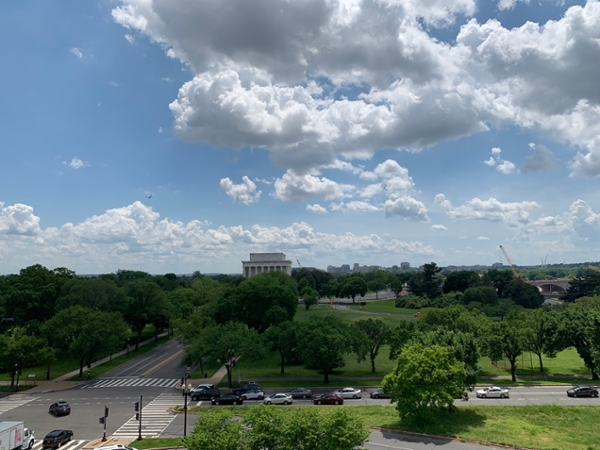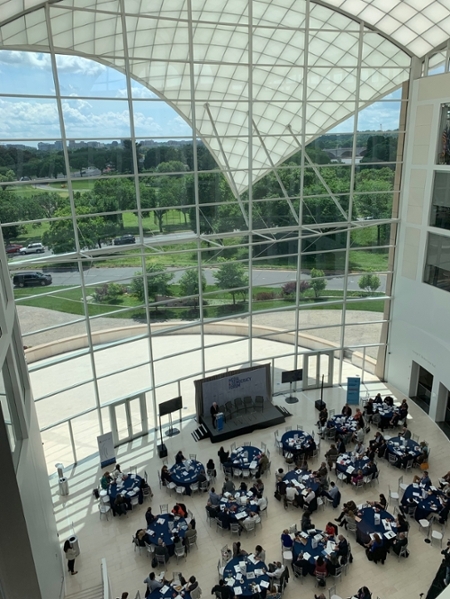The Institute
I think it is fair to say that government buildings in D.C., with the exception of those that populate the eastern side of the National Mall, are seldom described as architectural wonders. The United States Institute of Peace, however, is quite the exception. The Institute is in fact as stunning from the inside as it is from the outside—which is saying something. The view from the rooftop terrace is also breathtaking as it overlooks the Lincoln Memorial on one side and the Washington Monument on the other. One my first day, one of my colleagues proudly pointed out that standing in a very precise spot even allows you to catch a glimpse of the Capitol’s shiny dome.

If the building is mesmerizing from an architectural standpoint, its history is equally fascinating. As World War II veterans took greater roles in Congress, a campaign to establish a national peace academy and various peacemaking institutions started gaining some momentum, and the Institute was finally created in 1984 when President Reagan signed the USIP Act into law. Since then, the Institute has become a hub for peacemakers around the world. During my first week, I was in fact lucky enough to dive into the thick of the Institute’s peacemaking efforts as I met my team’s African field coordinators who were in the capital for a few days. These amazing women work with local communities in Nigeria, Mali, Senegal, Burkina Faso, Niger, and Tunisia to develop justice and security dialogues with the ultimate goal of fostering peace in the Sahel region.
Since then, I have been focusing on Burkina Faso’s legal system, which is fascinating because it mixes civil law and customary law. Burkina Faso is also an interesting country as it was thought to be relatively stable compared to its more turbulent neighbors and despite its thirty-five ethnic groups. Yet, when the population overthrew Blaise Compaoré in 2014, who had been leading the country since 1987, the rise of extremist groups began upsetting the fragile balance that had been established after the Faso became independent. Today, one core issue is the population’s lack of trust in the State’s justice system, which allows self-defense groups to solidify their control over certain regions. Corruption, impunity, and traditional values all constitute major roadblocks that the justice system will have to overcome if it wants to gain the people’s trust, which my team hopes to encourage with the help of tailored approaches for local communities.
